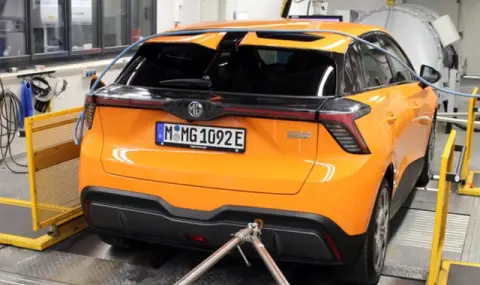Cars from Chinese manufacturers are becoming more popular in Europe. Their market share has grown sharply in recent years, especially in the electric car segment. Almost nine percent of battery electric vehicles in Germany come from Nio, BYD and MG. “That is why it is all the more important for us to keep an equally close eye on these new brands – be it within Euro NCAP or our own consumer protection tests“, emphasizes ADAC Technology President Carsten Schulze, who will also put the topic on the agenda at the club's upcoming general meeting (May 4, 2024 in Bremen).< /p>
The ADAC Autotest results for 13 models from the last three years paint a clear picture: Chinese cars are serious competitors and convincing in many of the test categories. With two exceptions, all cars achieve five out of five stars in the Euro NCAP crash test. Even in the so-called The "moose test", in which the safety behavior and in particular the correct functioning of the ESP is checked, the Chinese candidates show no weaknesses.
Many cars from European manufacturers achieve worse results. The experts of ADAC also distinguished above all the good quality of the materials and the skilled workmanship of the body and interior. “Our tests show: Chinese manufacturers have caught up significantly in recent years and can now compete with traditional European brands”, says the president of ADAC Technology Schulze.
However, the club reports a recurring flaw in the assist systems. Traffic sign recognition, lane keeping and distance systems often work unreliable in Chinese cars. Here, European manufacturers benefit from their decades of experience with these highly complex systems. However, you can see how quickly Chinese manufacturers respond to criticism: in the newer Nio models, for example, the systems have already been significantly improved.
Chinese models almost always undercut European manufacturers in terms of price, often by several thousand euros. But a car with a low purchase price may later turn out to be more expensive, for example due to an unexpectedly high loss of value or repair costs. Also, the dealer network is sometimes not as good as that of the established competition. While BYD, Maxus and MG have a broad base, it is unclear how the others will deliver new cars. Currently, Chinese manufacturers often cooperate with suppliers such as ATU and Euromaster for maintenance and repair. Here, Nio uses its own approach, which, like Tesla, relies on its own partners.
Florian Hördegen, head of automotive technology at the ADAC Technology Center in Landsberg, contradicts the image often conveyed in the media of “flooding the European market”: “Measured by total sales, Chinese cars currently represent more less than two percent in Germany ." However, the line between European and Chinese manufacturers is no longer as clear as it was a few decades ago. BMW and Citroen, for example, manufacture some of their models entirely in China, and the Smart brand has been relaunched in a joint venture between Mercedes-Benz and Geely.
